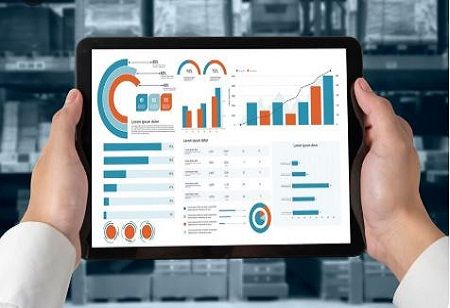Zeenat Parween, Correspondent, India Pharma Outlook

In an industry where anything that goes wrong in terms of compliance could lead to either recalls, regulatory fines, or harm to patients, the pharmaceutical sector is now under grave pressure to adopt modern ERP system.
Pharma transformation is not only about adoption of new technologies but about establishing a resilient, compliant infrastructure that supports everything starting from batch production to international supply lines.
This is why pharmaceutical enterprises are looking to the modern ERP systems in the pharma industry not as optional additions, but as a strategic need.
Essentially, ERP for the pharma industry integrates the procurement, inventory, manufacturing, quality control and regulatory reporting into a single platform. Furthermore, Pharmaceutical ERP solutions are designed to meet government audit and traceability requirements and control operations through every stage of the product lifecycle as compared to a generic ERP platform.
Also Read: How Pharma Contract Manufacturing Can Win Big in Weight-Loss Drugs
A lot of enterprises still operate in isolated and fragmented legacy systems, in which data visibility is minimal, and the audit is conducted through manual tracking. Yaveon GmbH has noticed that these systems present obstacles to serialization, audit logging and batch traceability as per GMP. Such circumstances represent regulatory and operational risk, particularly with worldwide regulations such as FDA, EMA, DSCSA, and EU-FMD.
Pharma’s pivot to modern ERP systems is driven by operational urgency and regulatory complexity. George Thompson, Global Director of Life Sciences at PeopleSoft, explained: “It is very important to have flexible software to embrace these new business rules quickly.”
The ability to be flexible and adapt to changes quickly is no longer an option, but a key. Today the GMP ERP systems automate the expiration management, digital audit trails and batch tracking. When MES, electronic batch records (EBRs), and Quality Management Systems (QMS) are integrated, there is less duplicate data, and fewer chances of increased operational risk.
Christine Sheehy, VP of Operations at Three Rivers Pharmaceuticals, noted: “It helps us manage the long lead times required for ordering ingredients for our products.”
Cloud ERP for pharma offers companies real-time visibility in the supply chain, which enables them to respond to disruptions in advance and manage them. Dr. Reddy’s Laboratories in India, through Prudhvi Teja, Senior Principal for Digital Operations, emphasized the shift to a "right-first-time" mindset—institutionalizing compliance and operational knowledge via integrated systems.
In addition to basic modules, it is now possible to achieve predictive analytics, intelligent automation, and AI-based quality controls through modern platforms. This takes the role of ERP to the next level where they are viewed, not as a compliance tool, but as a strategic innovation enabler. ERP validation in regulated industries ensures these systems remain audit-ready while retaining agility.
Also Read: Indian Pharma Branding Agency Market Outlook, Case Study & More
Existing ERP leaders in the market—SAP S/4HANA, Oracle Cloud ERP, and Microsoft Dynamics 365 have customized their modules to pharma. In the meantime, niche solutions such as Slingshot Pharma and Yaveon provide out-of-the-box compliance, batch traceability and validation for small and midsized manufacturers.
Greg Liscio, SAP Project Manager at Lannett Company, remarked: “Our competitive edge comes through managing our production cycle time, our supply chain and our inventory.”
Case studies show companies implementing pharma ERP software achieving 25–30% reductions in inventory discrepancies, faster batch release times, and improved audit response.
One of the midsize pharmaceutical companies with an annual turnover of approximately 400 crore looked to Contetra to deploy ERPNext a cloud-based ERP, designed and developed to support regulated spaces. They aimed to address inefficiency in inventory, delays in compliance documentation, batch production delays and poor departmental coordination.
Contetra deployed ERPNext in a three-phase rollout: diagnosis and customization, phased implementation with master data migration, and optimization post migration. Enhancements included barcode-based batch traceability, AI-powered inventory forecasts, automated compliance reports, and fully integrated dashboards.
This implementation proves the value that ERP system, implemented with discerning customizations and change management practices, can bring transformational results in operational efficiency, automation of compliance requirements, and financial performance.
The increasing standards of compliance and intensifying pressures in the global marketplace has transformed the concept of ERP implementation in pharma, it is no longer used as a back office upgrade but rather as a strategic facilitator. Platforms that integrate QMS, batch tracking, real-time dashboards and AI ready architecture are set for sustainable growth and flexibility.
Pharma firms that audit legacy systems, pilot modern ERP systems for pharmaceutical manufacturing, and align digital tools with business goals will not only meet current regulatory and operational demands—they’ll lead the industry in innovation, quality, and operational agility.
ERP (Enterprise Resource Planning) in pharma refers to software that integrates core business processes—like inventory, manufacturing, quality control, and compliance—into a unified system tailored for pharmaceutical operations.
Yes. Pharma ERP systems must be validated against regulations like FDA 21 CFR Part 11, EU Annex 11, and GMP guidelines to ensure data integrity and reliability.
Typical returns include: